Where do our candidates stand on the BBL?
The BBL (Bangsamoro Basic Law) is dead: so proclaimed House Speaker Sonny Belmonte on January 27. In truth, the history of Muslim-Christian relationships has alternated between unremitting conflict and relatively peaceful co-habitation for centuries. In more recent years, the former has tended to outstrip the latter. It’s not surprising, then, that this administration—like all those that preceded it since 1986—will again fall short of solving this deeply-entrenched conflict.
Last year, I spoke with Julkipli Wadi, Dean of Islamic Studies at the University of the Philippines, about the peace process and the problems inherent in the BBL. Today, BBL advocates are frustrated and disappointed by its failure. Lanao del Sur Representative, Deputy Speaker for Mindanao Pangalian Balindong, said it takes away the hopes of millions of people for recognition of their distinct identity, protection of what remains of the Bangsamoro homeland, and the chance to exercise self-determination through a parliamentary form of government consistent with Moro culture, faith and ways of life.
Analysts and advocates alike attribute the BBL’s failure to a confluence of factors: first and foremost, the Mamasapano tragedy; then: anti-Moro prejudice, as well as ignorance about the history and causes of the Bangsamoro struggle among legislators; and finally: President Aquino’s failure to certify the bill as urgent.
Chief government negotiator Miriam Coronel Ferrer was particularly critical of the legislature, blaming the chronic absenteeism (and sheer indifference) of the majority of legislators—thus the almost daily lack of quorum in the House—and repetitive interpellation of the opposition consuming the remaining sessions.
In the Senate, Ferrer added, the intermittent absence of the bill sponsor (Senator Marcos) and the remaining interpellator (Senate Minority Leader Enrile) stalled the deliberations.
Some civil society groups, on the other hand, breathed a sigh of relief because they considered the Basic Law for the Bangsamoro Autonomous Region (BLBAR) to be a severely watered down version of the BBL itself. “No BBL is better than a bad BBL,” one civil society leader insisted. Meanwhile, tens of thousands of internally displaced people hope to return to whatever’s left of their homes, even as thousands of war-weary Moro soldiers wait to be decommissioned so as to return to their everyday lives.
Without a doubt, the passage of the BBL would have stood a far better chance had this not been a presidential election year. Indeed, many legislators have been content to duck the issue on the eve of the elections. But this cannot be the case with the presidential contenders. The Mindanao peace process will surely be a major issue in the next administration. Where do the candidates stand on the BBL proposal?
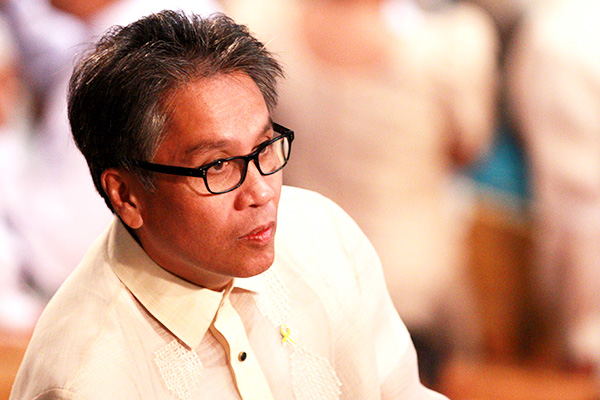
1. Mar Roxas. Together with PNoy, he has staunchly supported the peace process—counting the agreement with the MILF among the administration’s major successes. But despite being one of Aquino’s most trusted party-mates, Mar Roxas was—while Interior and Local Government Secretary—apparently kept in the dark about the Mamasapano operation until after the deed was done.
He also remained relatively quiet while many politicians castigated the MILF for the death of 44 PNP SAF troopers, even as he turned uncharacteristically emotional in questioning the AFP’s supposed inaction in the field.
In 2010, a religious leader from Marawi City chided him for opposing the Memorandum of Agreement on Ancestral Domain (MOA-AD). In 2013, Fatima Kiram—nominal princess of the Sultanate of Sulu—criticized him for allegedly siding with the Malaysian government in the Sabah standoff. Most recently, Norodin Lucman Alonto, a current Senatorial candidate for the opposition, objected to Roxas being accorded the title of honorary Datu on the grounds that he was allegedly “anti-Muslim.” All of these remain, however, unsubstantiated allegations.
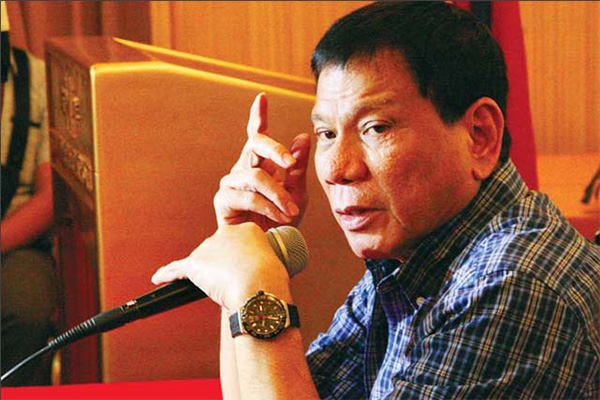
2. Rodrigo Duterte. He has generally supported the BBL (except for the provision allowing the Bangsamoro government to create its own police force) and being a Mindanaoan gives the Davao City Mayor a special angle from which to view the agreement’s concrete possibilities.
Should the law fail or become severely watered-down, he favors instead another administrative re-organization: the adoption of federalism to grant Moros greater autonomy. Federalism—a solution he frequently puts forward without concrete details about how it might be achieved—would “give the various Moro ‘tribes’ the independence they have craved for since the Spaniards set foot in the Philippines in the 16th century,” he argues.
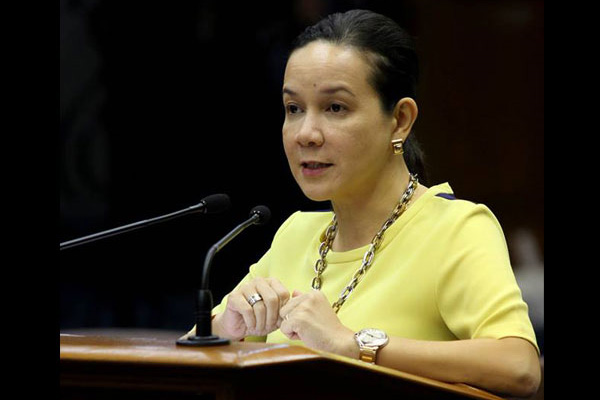
3. Grace Poe. She led the Senate investigation into the Mamasapano incident simultaneously with the Congressional debates on the BBL. The committee report assigned command responsibility for the failed operation to President Aquino. The investigation into the incident—which killed 66 Filipinos, including 44 from the SAF, 17 from the MILF and five civilians—was reopened by Sen. Enrile, largely to exact payback from PNoy with great fanfare, but to little effect.
Poe has been critical of Malacañang’s version of the law. She claims that it would create a separate republic within the country. She also opposes the opt-in provision that would allow any local government in Mindanao and Palawan to join the Bangsamoro unless an “opt-out” provision were also included. She recognizes the need for more jobs and infrastructural development for the region and that, as president, she would fast track the creation of power plants to address power shortages.
Poe has also been unusually kind to Aquino in the wake of the Mamasapano inquiry, and her critics have claimed that this is because of political motives.
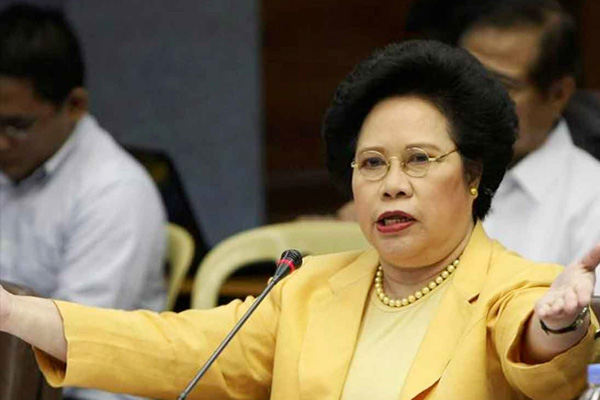
4. Miriam Defensor Santiago. As Chair of the Committee on Constitutional Amendments, she is one of 12 senators who signed a committee report calling the proposed BBL unconstitutional (a fact disputed by several legal luminaries). She warned last April that the MILF-government peace deal in effect created a Bangsamoro sub-state instead of a mere autonomous region, and “appeared to facilitate” its secession.
In the committee report, Santiago maintains that passing the original BBL draft would require amending the Constitution itself. She opposes granting the Bangsamoro exclusive powers over natural resources found in the area and has criticized provisions that would allow them to raise revenues. She is also skeptical as to how the proposed parliamentary form of government would function alongside the presidential system of the national government. Meanwhile, she claims it is not her intention to undermine the Bangsamoro peace deal, saying her goal is to ensure that the BBL would “be able to stand scrutiny in the Supreme Court."
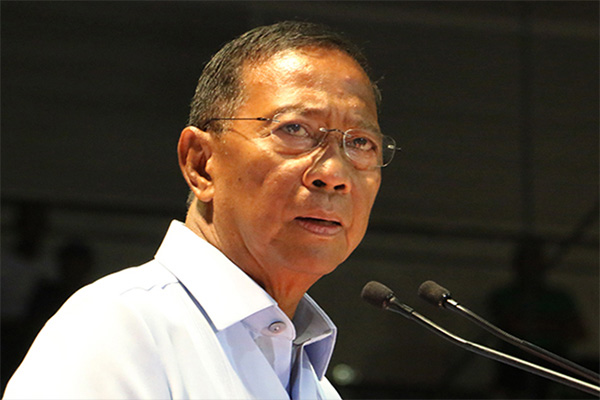
5. Jojo Binay. The Vice-President is no supporter of the proposed BBL, expressing serious reservations about its viability. At the height of the Mamasapano crisis, Binay was critical of the administration’s treatment of the SAF, saying he wanted peace with justice and accountability. He also criticized Presidential Adviser on the Peace Process Teresita “Ging” Deles' response: “She went to great lengths to justify the actions of the MILF, which we find very unfortunate. How can one justify the brutality inflicted on the wounded SAF officers, who were shot in the head and stripped of their uniforms and personal effects? That it is not the MILF but a cabinet secretary defending the brutality is disturbing, to say the least.”
Binay, like Miriam and Poe, regards the BBL’s present form to be unconstitutional, fearing it would impinge upon national sovereignty—creating a state-within-a-state—rather than an autonomous region. (A curious view of sovereignty, given his readiness to accommodate China in the West Philippine Sea.)
He wants a BBL that would give local governments an equal share of resources, along with the police force it provides the Bangsamoro region, arguing that it’s imperative that the government engage stakeholders other than the MILF—Christians, indigenous peoples and the MNLF. Binay cautioned the government against rushing the passage of the BBL—suggesting that it should not be “all-or-nothing.”
So why the urgency around the BBL? One would be the 122,000 internally displaced people in Mindanao—according to UNICEF, that figure includes between 30,000 and 50,000 children. The longer the situation continues, the more of these children grow into adulthood without education. Alienated from the nation, these children are at risk to becoming prey to recruiters of Islamic fundamentalism or human traffickers.
Economically speaking, that’s hundreds of billions of pesos in combat expenses, and approximately P20 billion in annual economic losses—to say nothing of over 120,000 lives lost—20% of which are non-combatants.
Indeed, some of the criticisms leveled against the BBL merit serious consideration—the ways in which national laws are to be brought to bear upon future Bangsamoro laws; how spending is to be regulated; how mineral rights are exploited; and income from them disposed. But other questions are not so easily answered in advance. No consensus has been reached on constitutionality and the question of a state-within-a-state.
We should hold our presidential candidates accountable and ask them to clarify their views on the BBL and the peace process as a whole. Who is playing demagogue and merely whipping up prejudices for political gain? The stakes are extremely high for resolving the Bangsamoro question, given urgent social and economic needs, on the one hand, and a swiftly changing geo-political landscape, on the other.
As my Mom said over dinner the other night—and here I paraphrase—“what is clear is that we need leaders who have humility, not bluster and bravado, religious and cultural tolerance, a talent for negotiation, a concern for equality and inclusive growth, and, finally, the courage to remain steadfast in pursuing peace.”
Words of wisdom from El Mommy-o.
- Latest
- Trending




























